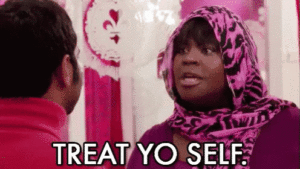Last week, I wrote about the benefits of being connected to work. Not only the flexibility that can come from it, but the true edge it gives us to move throughout our day in the most productive way possible. Despite this, I didn’t mention much about the dark side. We lead these connected lives on an extremely slippery slope. If you didn’t read my last post, I promise this can be read as a standalone.
How do we ensure our connected lives don’t get the best of us? Be intentful. Be purposeful. Approach everything with a results-oriented focus.
I find these few words of advice are so difficult to follow. Each day, just when our minds begin to turn off, that familiar temptation takes over – to take a peek at what was left behind after a long day, to check in for just a minute. While that little peek always feels harmless, it sometimes leads us to see that colleagues are still working…er…maybe just looking busy. It makes us question whether or not we should be doing the same, or if we simply aren’t doing enough. Sometimes it feels like everything to us, when it may be nothing at all.
I’ve fallen victim to this before. At times, it has hurt my career and personal life, but just the same, there have been times some level of advancement can be attributed to it. All in all, I enjoy being connected to work, but it’s something that our generation would be wise to keep in check. It isn’t a danger only for millennial generations, but I think the temptation of connected busyness is stronger for those in the first 5-10 years of their career. The desire to impress is ever present and showing effort by staying connected feels like a key part of that. The lines become blurred so quickly, however, that it may take years to recover – if we ever will. Showing our consistent connectability to a job can become an obsession.
While it feels different, showing our connectability isn’t limited to work. You know the word, FOMO. It’s really the same thing in our personal lives. What a travesty it is for us to miss out on something in our personal network. When you really think about it, after work and play, there’s not much left. It becomes difficult to find the peace that we need to re-energize. Don’t get me wrong, the benefits of advancements we’ve made to live in this connected world are tremendous. Lives are consistently positively affected by these advancements. However, we shouldn’t overlook the unintended consequences.
In pondering all of this, I think we can take plenty of different actions to recover. As big business never fails to show us, mindfulness is now a foundational key to reducing stress in a connected life. That said, the ways in which we direct that mindfulness is extremely important. I really think it circles back to having intent, purpose, and a focused approach. Having intent and purpose in all that we do can help “weed” out some of the unnecessary tasks that tempt us to stay connected at all hours. Focusing on results can guide our thinking and eliminate the poorly directed focus on short term gain that may result from unnecessary tasks. By combining these three principles, we can stay on track and hopefully curb the busyness of our lives, without sacrificing personal and professional advancement.
 Quintin Meek a talent consultant at Pillar Technology (part of Accenture Industry X.0). Also an active member of Detroit’s startup and tech community. Every day is something new and challenging, and I am learning more than ever before. I’m finding that I’ve become a lifelong student, and I’m excited to see how that continues to shape the road ahead.
Quintin Meek a talent consultant at Pillar Technology (part of Accenture Industry X.0). Also an active member of Detroit’s startup and tech community. Every day is something new and challenging, and I am learning more than ever before. I’m finding that I’ve become a lifelong student, and I’m excited to see how that continues to shape the road ahead.



